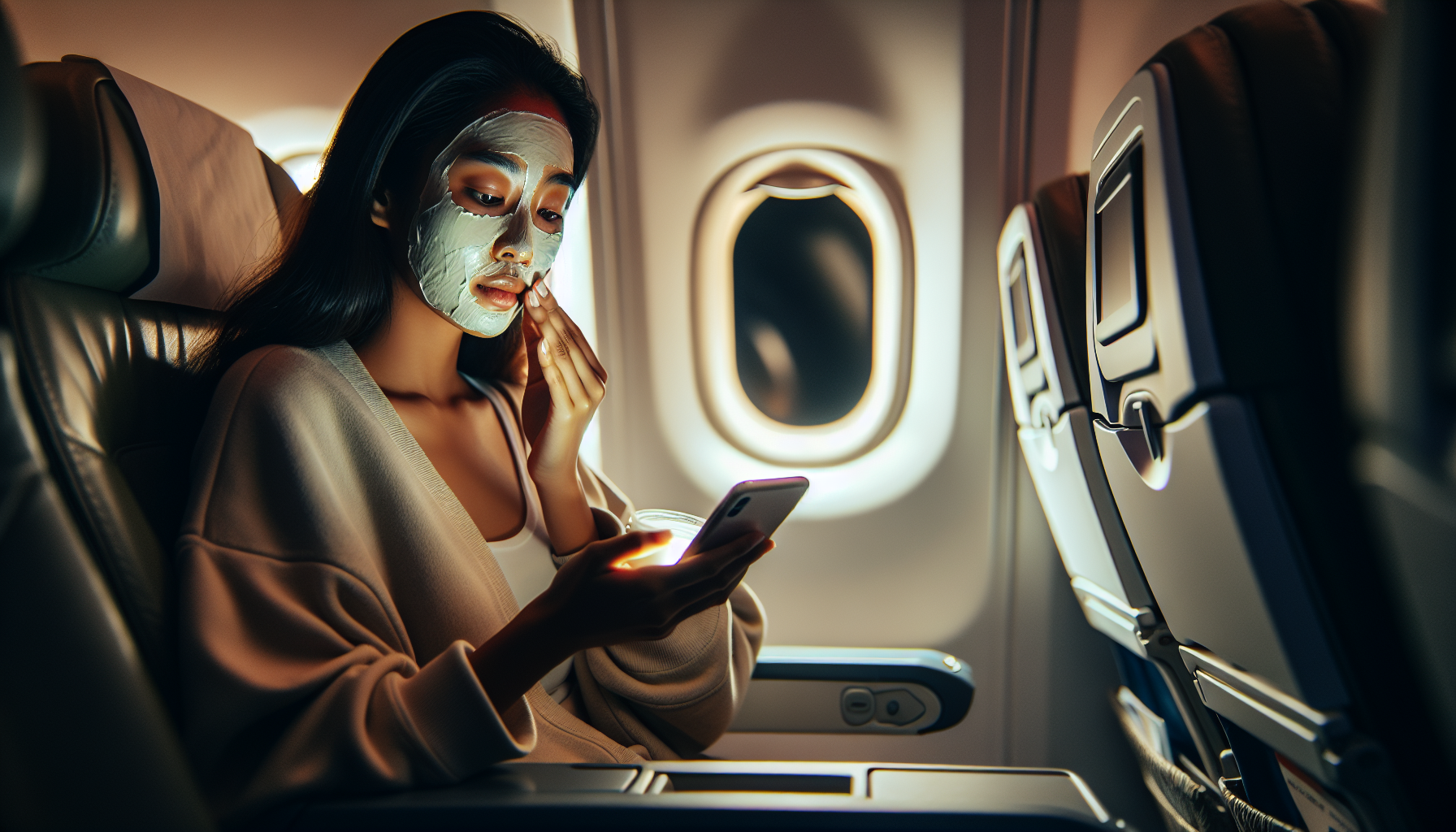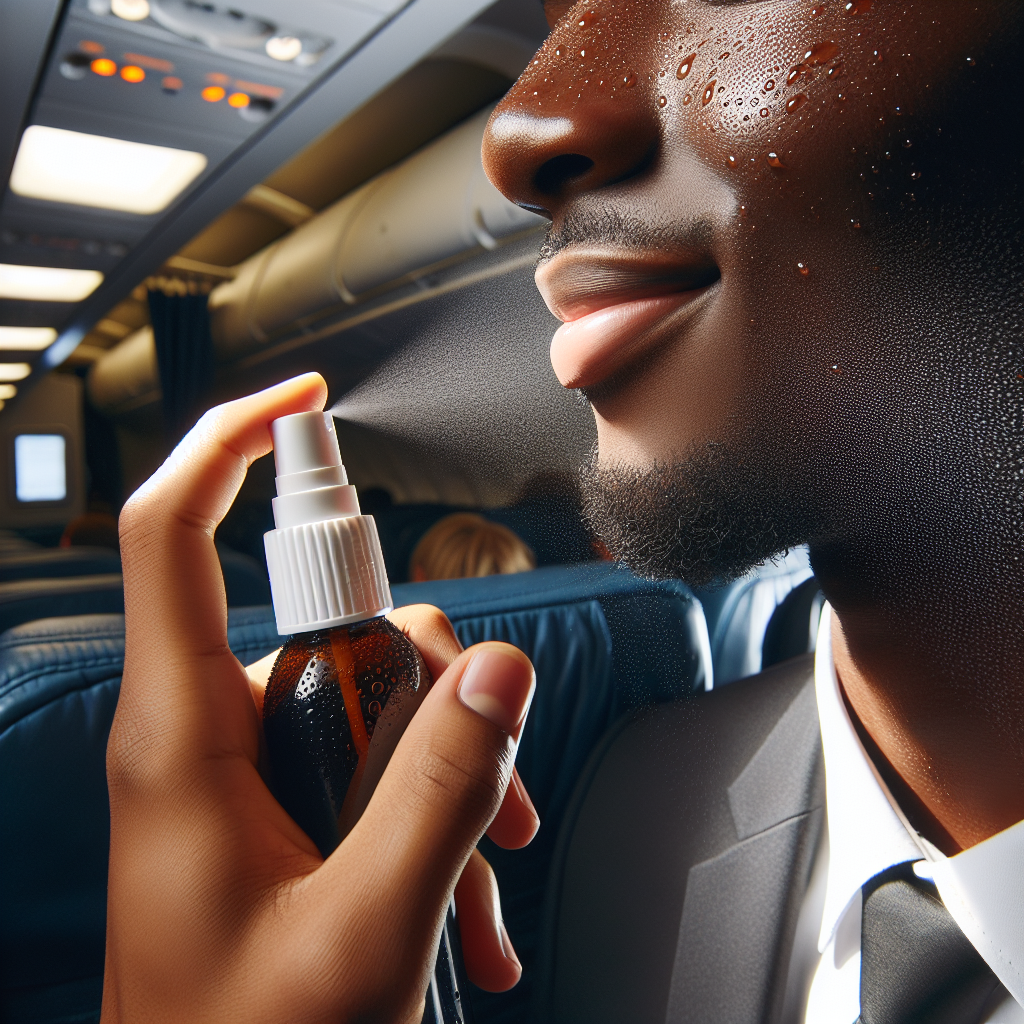Air travel has become a ubiquitous part of modern life, but while it has made the world more accessible, it has also presented new challenges for our skin health. The controlled environment of an airplane cabin is significantly different from the conditions our skin is accustomed to on the ground. This article will delve into the impact of air travel on skin dehydration and provide valuable care tips to mitigate these effects.
Understanding Skin Dehydration During Flights
The air inside a plane’s cabin is typically less than 20% humidity; this is significantly lower than the comfortable 40-60% range that our skin prefers. This dry air causes the skin to lose moisture quickly, leading to dehydration. Dehydration of the skin can result in tightness, flakiness, and can exacerbate the appearance of fine lines. It can also lead to an overproduction of oil as the skin attempts to compensate for the lack of moisture, potentially causing breakouts.
For more comprehensive insights on skin health, you can explore Avix Health’s detailed guide on skin health.
Mitigating Dehydration: Pre-Flight and In-Flight Strategies
To combat skin dehydration, it is essential to prepare your skin before the flight and care for it while in the air. Here are several strategies:
Pre-Flight Hydration
Start hydrating your skin well before your flight. In the days leading up to your trip, make sure to:
- Increase water intake: Keeping your body hydrated from within is crucial. Drink plenty of water before your flight to ensure your skin is well-hydrated.
- Use a hydrating serum: Products containing hyaluronic acid can help lock in moisture and maintain skin hydration levels.
- Moisturize thoroughly: Apply a richer moisturizer than you typically use to create a barrier that helps prevent moisture loss.
In-Flight Skincare Routine
Once on the plane, continue your skincare routine to protect your skin from the arid environment:
- Avoid alcohol and caffeine: These can dehydrate your body and skin. Opt for water or herbal teas instead.
- Refresh your skin with a mist: A hydrating facial mist can help replenish moisture throughout the flight.
- Apply moisturizer regularly: Reapply your moisturizer or use a hydrating mask, especially on long-haul flights.
For a deeper understanding of how hydration affects skin health, including oil production, consider reading about the relationship between hydration and skin oil production.
After-Flight Skin Recovery
Post-flight, your skin will need some extra TLC to recover from the dehydrating effects of air travel. Here’s what you can do:
- Cleanse gently: Use a gentle cleanser to remove any accumulated oil and impurities without stripping your skin of moisture.
- Rehydrate: Continue to drink plenty of water and apply a hydrating serum followed by a moisturizer to restore hydration levels.
- Soothe with a mask: A soothing face mask can help calm down stressed skin and provide a surge of moisture.
Long-Term Skincare Considerations for Frequent Flyers
For those who frequently travel by air, incorporating specific long-term strategies into your skincare routine is crucial. These include:
- Antioxidant protection: Use skincare products with antioxidants like vitamin C to protect against free radicals and environmental stressors.
- Eye care: The delicate skin around the eyes is particularly vulnerable to dehydration, so use a hydrating eye cream regularly.
- SPF protection: UV exposure is more intense at high altitudes, making sunscreen a must—even when inside the plane.
To explore further tips on protecting your skin and maintaining a youthful complexion, you can read about age-specific skin care tips.
External Resources for Further Reading
As part of your skincare journey, especially if air travel is a frequent part of your life, consider consulting the following niche resources:
- The Skin Cancer Foundation’s Guide to Sunscreens
- International Journal of Cosmetic Science’s research on the role of hyaluronic acid in skin hydration
- The American Academy of Dermatology’s tips on choosing moisturizers for dry skin
- Dermatology Times article on the effects of cabin pressure and low humidity on skin
- Harvard Health Publishing on the importance of drinking water for skin health
Incorporating these sources into your learning will provide a well-rounded understanding of how to keep your skin healthy, hydrated, and resilient, especially when faced with the challenges of frequent air travel.
In conclusion, while air travel is an inevitable part of modern life for many, it doesn’t have to compromise the health of your skin. By understanding the impact of flight conditions on skin dehydration and following a targeted skincare routine before, during, and after your flights, you can help maintain your skin’s hydration and health. Remember to consult niche resources and seek out additional information to tailor a skincare approach that works best for you. With the right care and attention, your skin can remain hydrated and vibrant, no matter where your travels take you.



